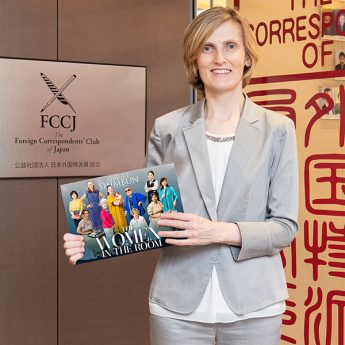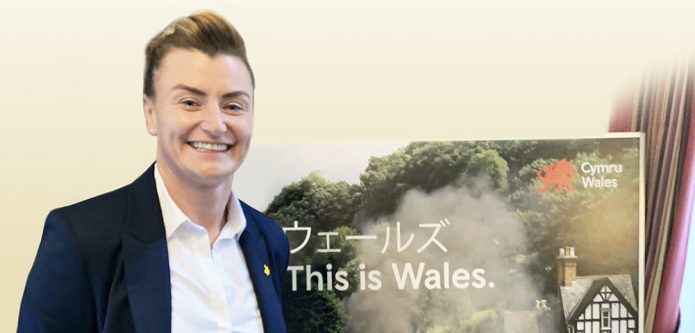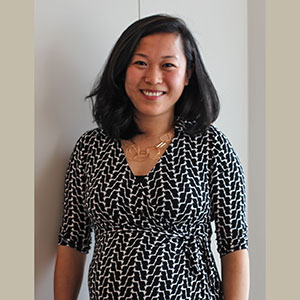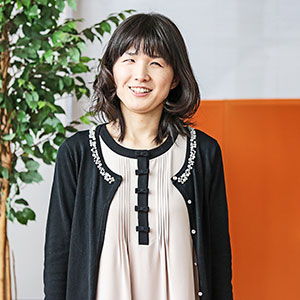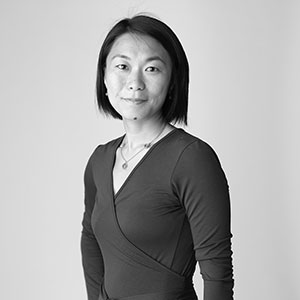
Maiko Itami, marketing manager at EF Education First Japan K.K.
Growing up one hour from Tokyo in Kanagawa Prefecture with Camp Zama, a US Army post, a stone’s throw away, Itami would often gaze through the fence and wonder how life could be so different on both sides. At the age of 15, Itami spent a year abroad in the US state of Idaho, on an exchange program with EF Education First Japan K.K. (EF), where she saw a different culture and way of life.
With a new outlook, she attended a Japanese university and majored in anthropology, looking at the differences between people based on economic power and lifestyle. She wanted her own economic independence so joined an advertising agency, where she focused on understanding consumer needs.
Twenty years later, Itami returned to EF with the aim of making an impact in society through education.
What are the best and worst decisions you have made in your career?
That’s tough, because who I am now is the result of the best and worst decisions I have made. My best was probably that I took a chance and changed industry from advertising to education, and I committed to that change.
What has been the greatest challenge in your career and how did you meet it?
All the people on my team were new, so we had to start from scratch; there was nothing to work from. But once I put that aside, I thought maybe that’s a chance for me to create my own thing. The mentality of enjoying the challenge and looking at the positive side was important.
How do you achieve a work–life balance?
Something I totally agree with at EF is the “work hard and play hard” mentality. People here put 100% into everything they do. Your body follows and that keeps you mentally healthy.
What are some of your present challenges?
Prioritising! I have so many things I want to do, but need to decide when to do them and what is more important. For this, I feel changing the way we work and having an “always striving to make it happen” mentality is important. I also discovered a golden time, or my time, which is in the early morning before anyone gets to the office. There are no calls or meetings and that time is only for me. I think everyone should have a golden time, and use it to their advantage.
What challenges do women in Japan face when taking on leadership roles?
Some people think that women should not be in certain positions, but I also think this is jealousy—men are jealous! If I have issues like that at work, I will go up to my superiors and ask why that is. Women can use this as an advantage too; it is good to use diverse sources of power in business. You want different perspectives, and you can use that female power.
As a woman you have more options than men—you can be a mother, an office lady, or both, or be by yourself and be an entrepreneur, or even create a new option. You can choose which part you want to play and it seems to me that men only have one direction—especially Japanese men—and that’s being a salaryman. I feel sorry for men.
But we have to speak up because sometimes it is easy to get comfortable not speaking up, and in this role I feel I am helping someone to speak up.
What have you learnt about leadership so far?
Have you seen Inside Out? I’m not the type who likes cartoons, but the characters show that fear, joy, sadness, anger and disgust are emotions that drive decisions. The combination of those five emotions makes you, and helps you to lead. And being able to manage my own emotions is important so that I can help others.
What is your advice to the next generation of female leaders in Japan?
When something comes up, you must grab the opportunity. Then it is all about determination and commitment to make it work. Be curious. In Japan we have a fear of going outside of the box. We need to question how things have always been done and have more powerful women speak up like Tokyo Governor Yuriko Koike. We have to be comfortable being diverse.
Who inspires you and why?
I really like Manny Pacquiao—outside of boxing he is humble and has multiple faces: basketball coach, senator, boxer and father. His way of approaching the ring, with speed, aggression and always moving forward, and his stamina, I think are amazing. Be it in boxing or at work, speed and stamina are key.

